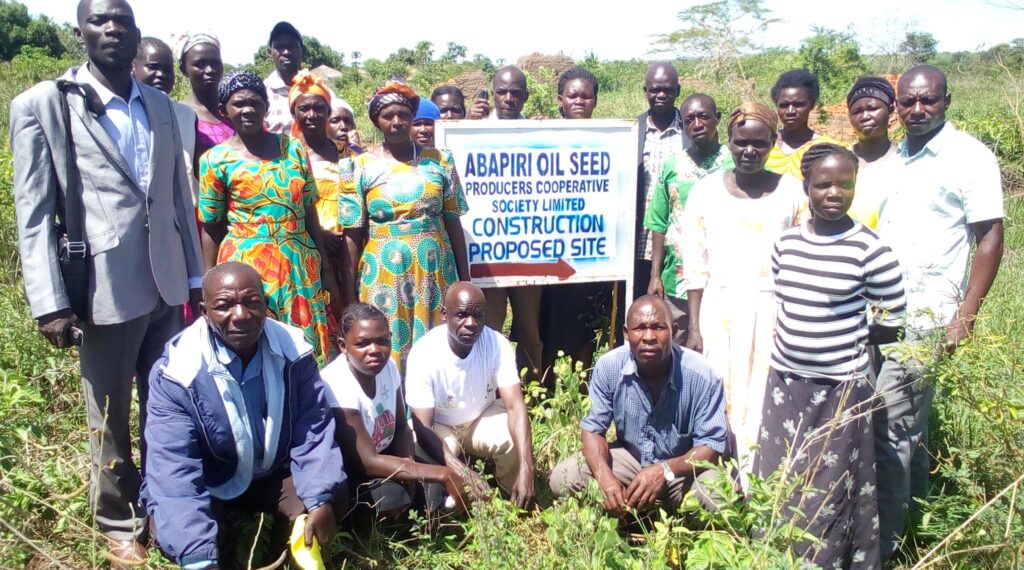By Solomon Okabo
Members of Abapiri Oil Seed Cooperative Society, a group of farmers in Abapiri village, Atule parish, Chawente Sub County in Kwania District are realizing the commercial potential of apiculture, the deliberate keeping of bees for honey and other products.
Abapiri Oil Seed Cooperative Society with 451 members and a current loan portfolio of Shs.250mln was established in 2017 as a Village Savings and Loan Association (VSLA) with the aim of promoting commercial agriculture and strengthening group marketing for increased household income.
However, Stephen Otim Puli, the Chairperson of Abapiri Oil Seed Cooperative Society says that his members who were previously dealing in soya beans, simsim and maize picked interest in modern beekeeping following an initiative by a local non-governmental organization, Community Management Watershed Development Organization (Comwo), which was supported by funding from the European Union.
“Comwo conducted a sensitization of the farmers about the best practices of modern beekeeping, followed by training, processing and marketing of the packed honey. The farmers were equipped with skills in quality control, harvesting as well as spotting places to establish apiaries,” he said.
“It is important to note that apiaries are set either under a big tree or a thick of forested natural trees, where there is source of water and where there is no noise,” he added.
According to Otim, since his members started this initiative last year, they have harvested three times. Each bee hive contains 10kg of honey on average. The honey is processed at the mini factory and packed in 500 gram bottles, which are sold at Shs.6, 000 each. “Since November last year, we have sold honey worth Shs.5.5mln which will be shared among the members, “he said.
Marry Akello, the General Secretary of Abapiri Oil Seed Cooperative Society Limited said the group members are encouraged to own local beehives individually from which they can bring honey for processing at the Cooperative’s plant at a subsidized fee.
Robert Ogwal, a member of the Cooperative says “We are so excited because our lives are gradually changing. Currently, the processed honey is sold at the local markets in Aduku, Apac and Lira. Most customers like it because it is not adulterated. “he said, adding that “We plan to collect proceeds from the sales which we intend to save and eventually lend to other farmers inform of loans which will be paid back with interest.
George Johnson Ojok Ocen, Kwania District Production Coordinator encourages more farmers in the district to do beekeeping saying is a manageable farming activity due to its climate and plant cover.
“Our area is endowed with natural flowering plants, which enhance the quality of the honey. Although a source of water is a big challenge, I want to advice more farmers to invest in this project and establish small dams near sites where the beehives are set up, “he said in a telephone interview on Friday.
Bees are generally farmed for their honey and other products such as bee wax, propolis, flower pollen, royal jelly and bee pollen among others. It is estimated that there are more than 20,000 species of wild bee species around the world.






